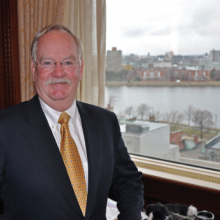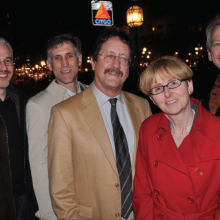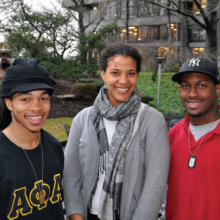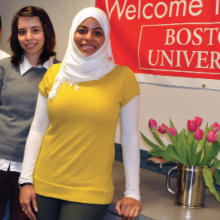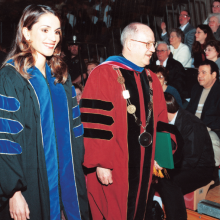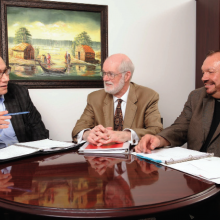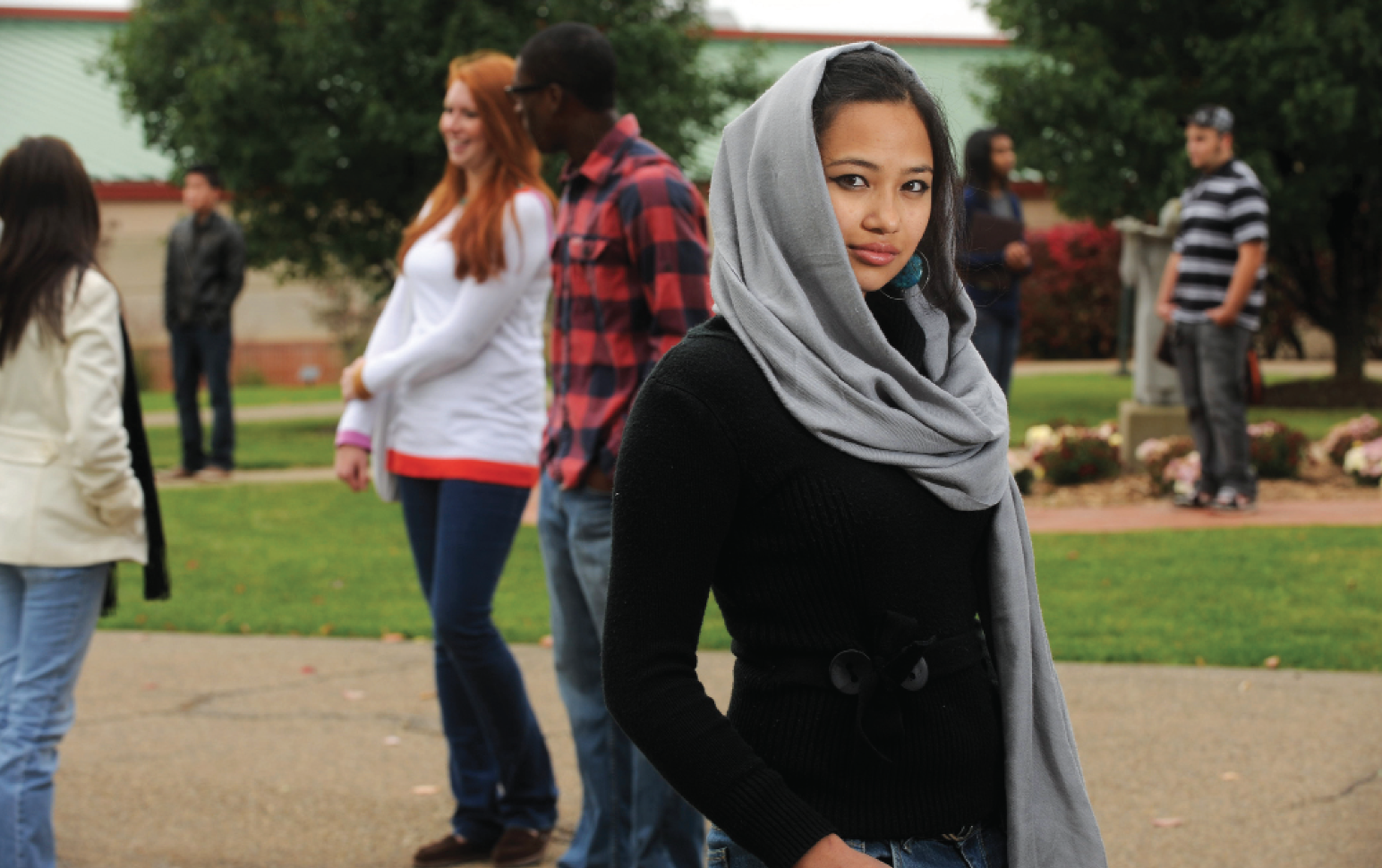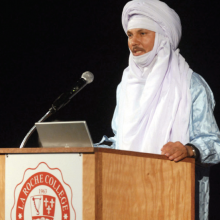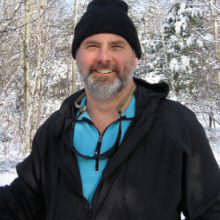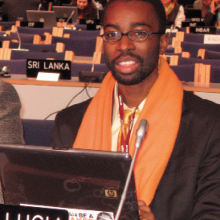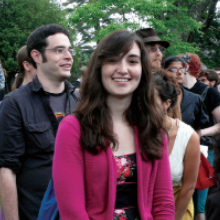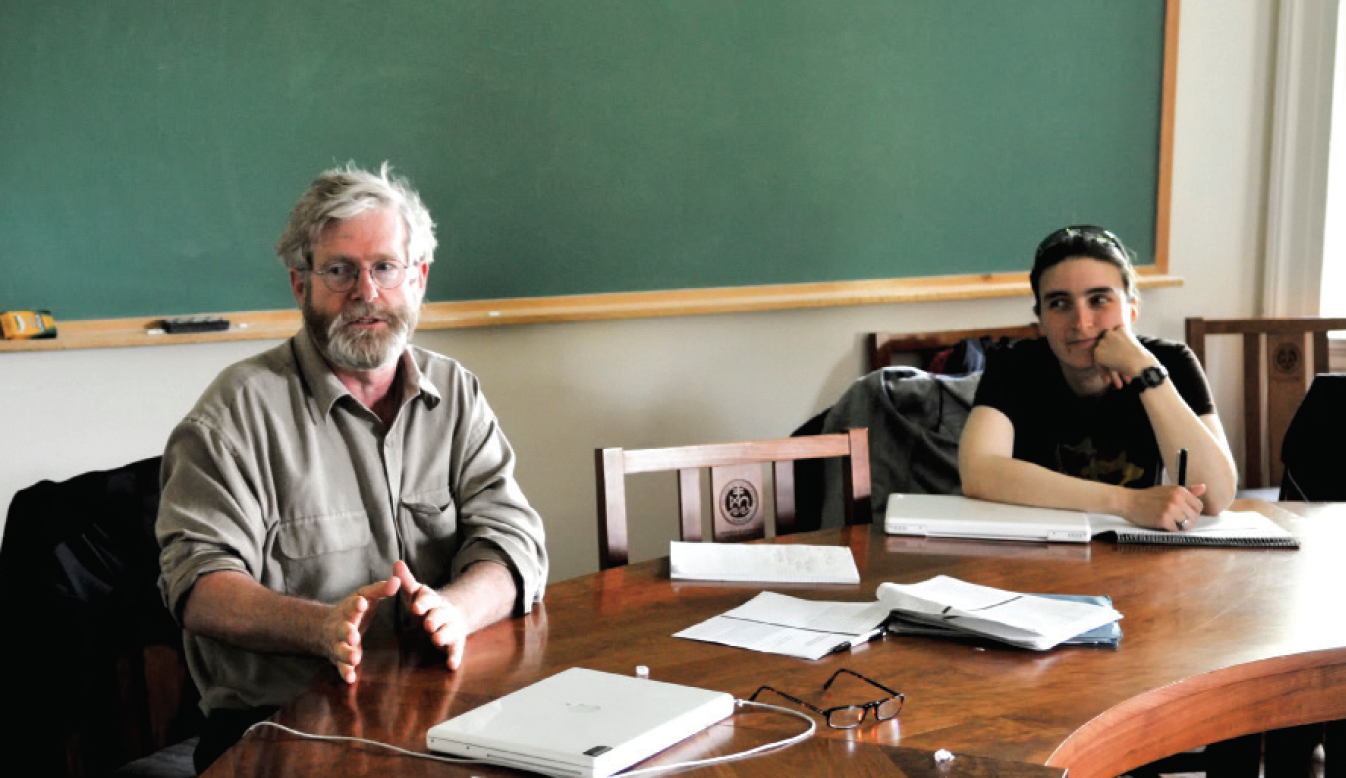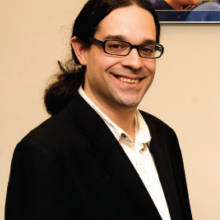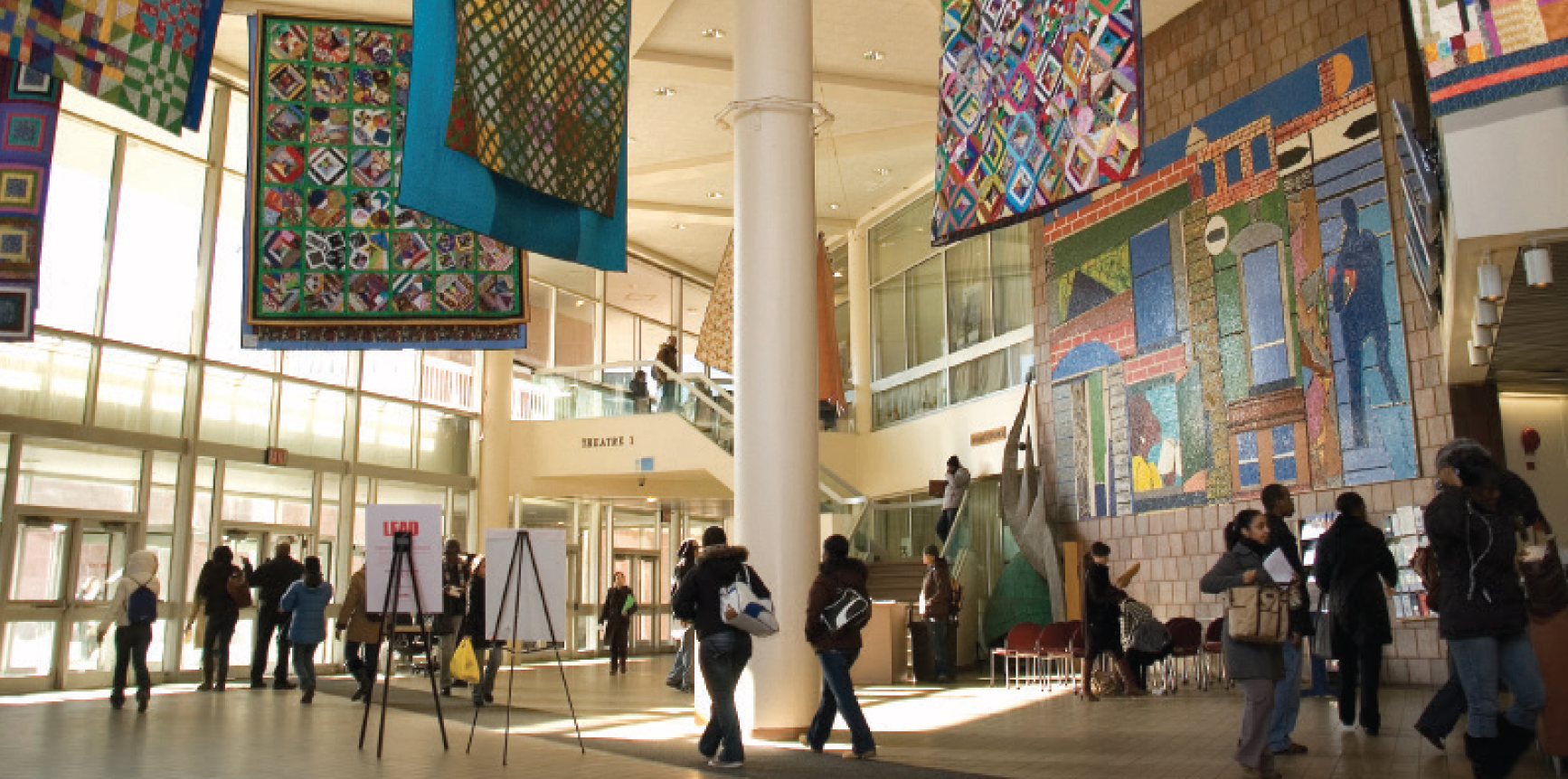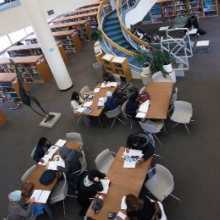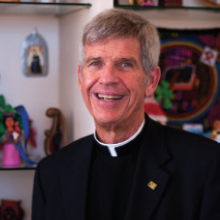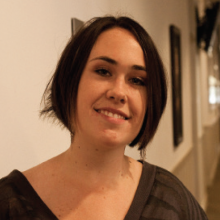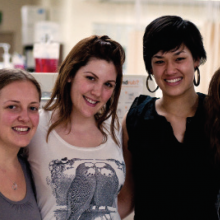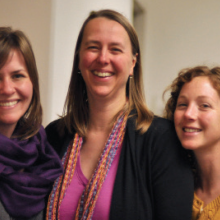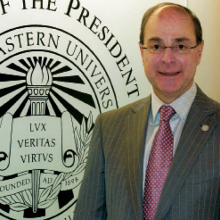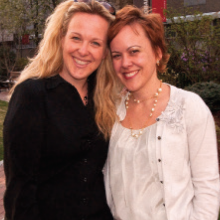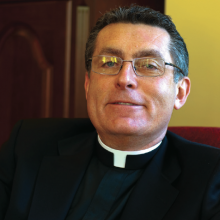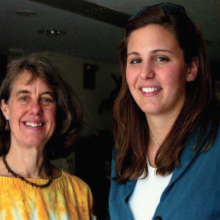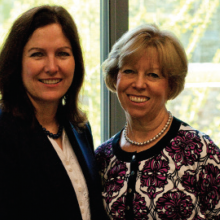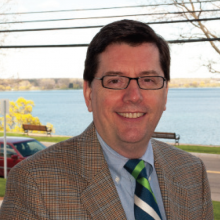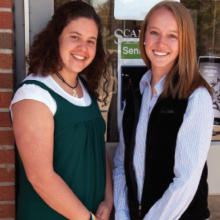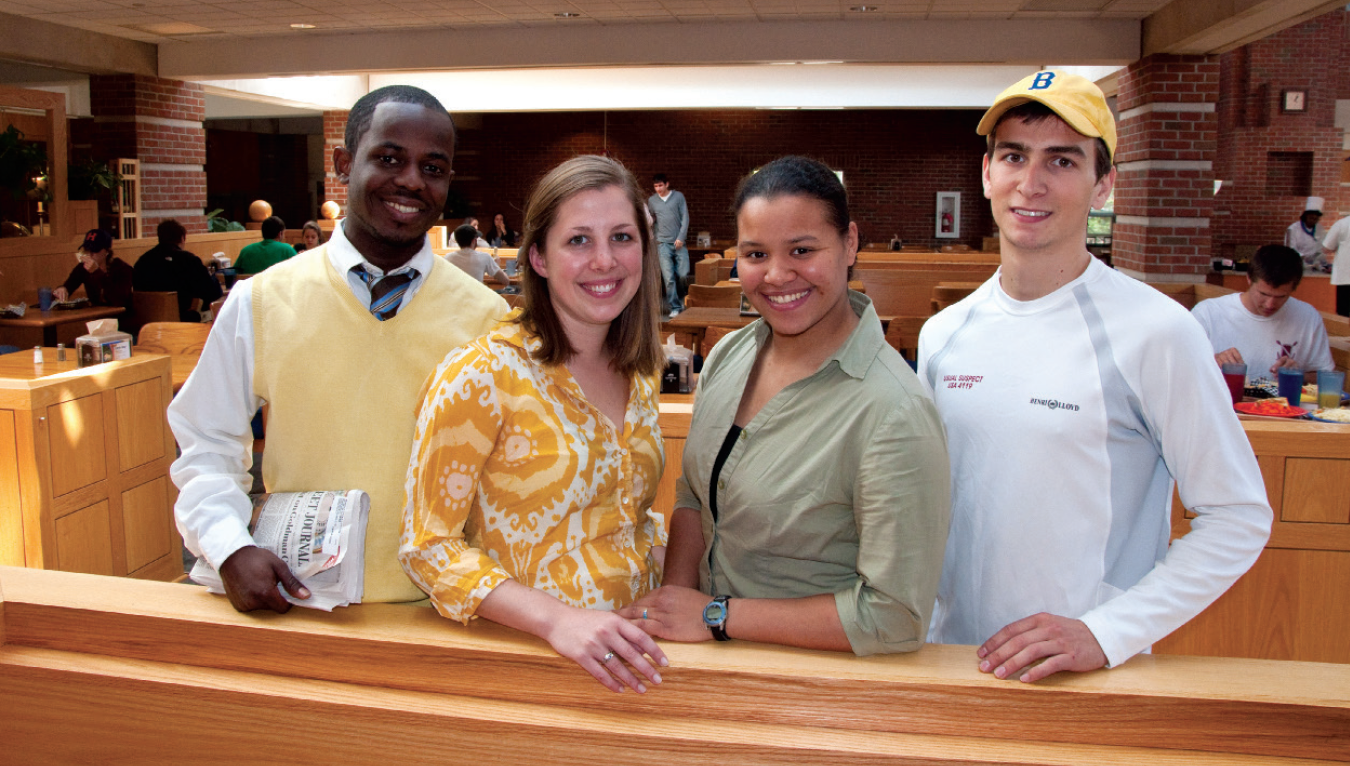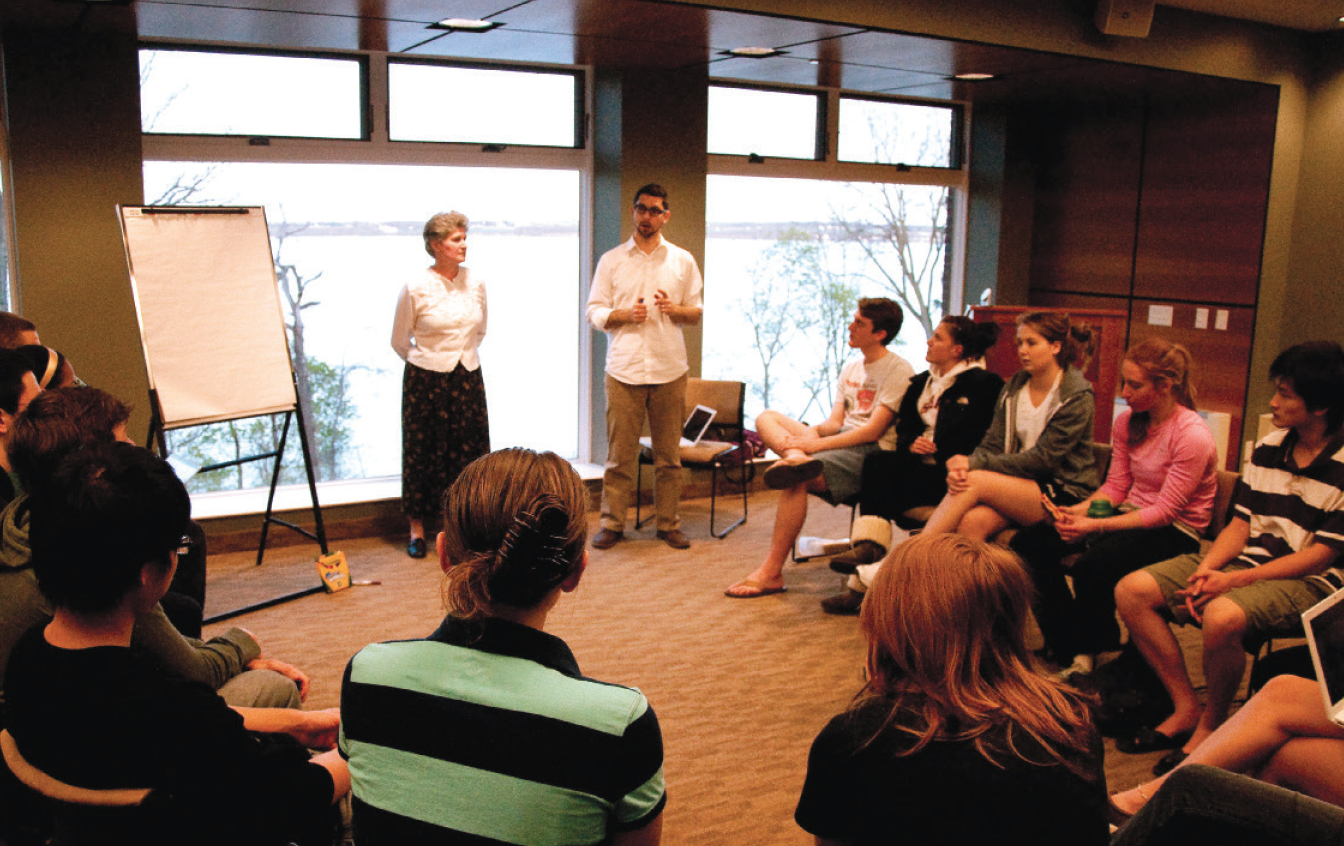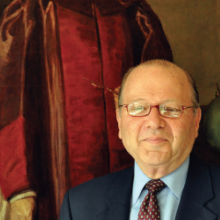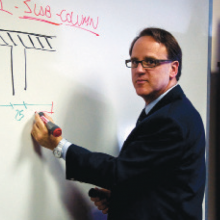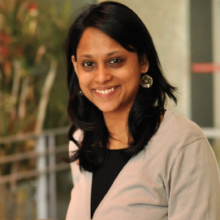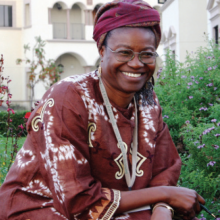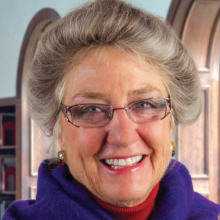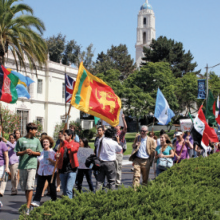2009 Comprehensive Boston University
Boston University (BU) is impossible to miss, perched alongside the Charles River in the city that dubs itself the Athens of America. Dorms and lecture halls stand sentry on Commonwealth, and the Boston T trolley doubles as the campus shuttle. Kenmore Square, the iridescent CITGO sign, and Fenway Park sit in BU’s backyard; the Prudential Tower looms in the distance. In this vibrant cityscape, this one-time Methodist seminary has blossomed into the fourth largest U.S. private university, with 30,000 students and a phalanx of graduate and professional programs. It enrolled more than 5,000 international students from 135 countries in 2008–09, and it operates one of the premiere education abroad programs, sending 1,500 BU undergraduates and 700 from other U.S. campuses to destinations around the globe for work and study.
BU has embarked on a 10-year, $1.8 billion drive to move higher in the academic rankings, and its 2007 strategic plan, Choosing to Be Great (www.bu.edu/president/strategicplan/choosing.shtml), makes building on BU’s international strengths a cornerstone of that strategy. While pledging to continue “our long and proud tradition of service-based and professional learning,” it emphasized that “the landscape for our students and programs is more than Boston; it is the world.” Already the percentage of international students in the freshman class has jumped from 7 to 11 percent, and President Robert Brown is aiming for 14 percent, which he says would give BU “basically a global student body.”
Strategic Growth in Languages
Another impact can be seen in BU’s language programs, already the beneficiary of several of the 100 new faculty positions planned. Eighteen languages from Arabic to Korean are regularly taught, and BU’s African Studies Center, a Title VI national resource center and one of the nation’s oldest, provides instruction in half a dozen more.
“Deans nowadays are running languages together into huge departments with all kinds of crazy combinations; BU is walking in the other direction.”
James McCann, an environmental historian who studies the nexus between maize and malaria, said its broad reach allows students to write dissertations in fields “all the way from geography to anthropology in different parts of Africa.”
Not every BU student must learn another language, although the large College of Arts and Sciences requires proficiency. Even without a blanket requirement, 9,000 students are studying languages. Dean of the College of Arts and Sciences Virginia Sapiro said, “I’ve been working to expand the number of lesser taught strategic languages.” Already she’s hired new, tenure-track faculty for Turkish and Arabic, and Persian is next.
BU bifurcated an omnibus language unit into separate Departments of Romance Studies (French, Italian, and Spanish) and Modern Languages and Comparative Literatures (German, Russian, Turkish, Arabic, Hebrew, Persian, Japanese, Korean, and Chinese). Christopher Maurer, chair of the Department of Romance Studies, said, “Deans nowadays are running languages together into huge departments with all kinds of crazy combinations; BU is walking in the other direction.” William Waters, chair of modern languages, said, “They don’t have armies of students studying those (strategic) languages… but what you see in Dean Sapiro’s moves there is strategic thinking” about bolstering BU’s intellectual capacity in such areas as Muslim studies. A professor of French, Elizabeth Goldsmith, was tapped in 2008 to become full-time director of academic affairs for all BU education abroad programs, and BU also has created a new position of director of language programs.
Full Semesters and Internships Overseas
Most BU students who study abroad go for a full semester. Open Doors 2008 ranked BU fourth among doctoral institutions in that category. More than 40 percent of undergraduates study abroad and Brown is aiming for 50 percent at an institution that once was primarily a commuter college. Internships are a signature of BU education abroad. With 4,000 active internship sources worldwide, the Division of International Programs boasts that it can personalize placements in fields ranging from the arts and journalism to business and psychology. Faculty love this. “If the students know there is a study abroad program, that draws them in like a vacuum cleaner,” said James Iffland, a professor of Spanish. He credits Urbain “Ben” De Winter, associate provost and head of the Division of International Programs, with being “an absolute dynamo” in developing opportunities for study and internships abroad. Eugenio Menegon, a professor of Chinese history, said, “If you find the right opportunity and provide just a little bit of faculty support, it’s amazing what the students can do. They take off.”
Stepping Into ‘This Engaging World’
One signpost of BU’s passion for global education is that international relations is the largest major in the College of Arts and Sciences, drawing 1,100 of the 16,000 undergraduates. The international relations faculty includes former ambassadors, Foreign Service and military officers, as well as scholar Husain Haqqani, now on leave as Pakistan’s ambassador to the United States. Erik Goldstein, the department chair, said the curriculum “offers a special blend of the academic and the practical applications of international affairs,” with more courses on intelligence and security issues than any university outside the war colleges, as well as dozens on the environment and development.
“It is a department that really values teaching and understands we have a strong obligation to our students,” said William Grimes, associate chair of international relations and director of a new Center for the Study of Asia. The Asia center “gives us a seat at the table when it comes to talking about how to expand our faculty and curriculum.”
The popularity of international relations is no surprise, said Brown. BU students chose a university “that is big and complicated and right in the middle of a city. The world looks interesting to them. They’ve already taken one step into this engaging world.”
Educating Engineers and Pre-Meds Abroad
A decade-long push to encourage engineering students to pursue part of their education in other countries has resulted in almost 20 percent of engineers spending a semester studying overseas. Most head to Technische Universität Dresden, where they can take engineering courses taught in English while also enrolling in German language and cultural classes. The Dresden model proved such a good fit that BU now sends engineers to universities in Tel Aviv, Israel, and Guadalajara, Mexico, as well. In all, 55 engineers studied abroad last year, said Associate Dean for Undergraduate Engineering Solomon Eisenberg.
Science majors also study at the Dresden technical institute, taking organic chemistry in a class of 25 instead of 200 back in Boston. The Dresden science program recently branched out to Grenoble, France, where BU premeds can immerse themselves in French culture (although again, the science courses are taught in English). “The sophomore year is ideal for this. The later you wait, the harder it is,” said Mort Hoffman, an emeritus professor of chemistry who helped establish the partnership with the Dresden university.
A Foothold in the Middle East
BU began offering postgraduate degrees for dentists in Dubai in July 2008, and the School of Medicine has explored opening a branch in the Middle East. Brown called the Dubai dental offerings part of “a grand experiment” to see which BU degrees can be offered at great distances. But he rules out trying to replicate its undergraduate program overseas. “BU is known as a very fine liberal arts general education with a diversity of majors at the undergraduate level overlaid with a really rich set of graduate programs. The question is, if you don’t replicate the graduate professional programs (and) the diversity of undergraduate programs, then is it BU?” asked Brown, former provost and engineering dean at Massachusetts Institute of Technology (MIT).
The School of Public Health is spearheading a Global Health Initiative that engages faculty from many fields in efforts to reduce health disparities between wealthier and financially strapped countries. Even Robert Pinsky, former U.S. poet laureate, has participated in its symposia. Associate Dean Gerald Keusch, former director of the Fogarty International Center at the National Institutes of Health, said, “If you believe as we do that global health touches on everything, then you need to connect across the whole of the university. Students have this great urge to do something meaningful. We’re playing into that.”
Jay Halfond, dean of Metropolitan College and Extended Education, who chairs the President’s Council for a Global University, said, “We’ve become very principled about how we choose to be involved internationally,” he said. BU looks for “true academic relationships and engagements that will enhance the reputation of the university,” not just business opportunities. Metropolitan College offers continuing education classes online and on military bases, as well as at a graduate center in Brussels, Belgium.
BU already has exchanges with Chinese universities in Shanghai and Beijing, and the provost and faculty members have paid exploratory visits to Indian institutions. Management professor Sushil Vachani said, “We’d like to be better known in those countries. The world’s center of gravity has shifted towards Asia.”
Weaving Education Abroad Into BU’s Fabric
Ben De Winter, associate provost for International Programs, has orchestrated the expansion of BU’s international activities since 1997. “My sense was that the greatest challenge here was to integrate study abroad into the fabric of the university, into the curriculum, to make it part and parcel of a BU education, not simply an experience that was somehow set apart,” said De Winter. He made the rounds of Boston University’s 17 schools and colleges, discussing with deans and faculty where their disciplines fit into an international context. Soon the College of Fine Arts was sending theater majors to the London Academy of Music and Dramatic Arts for a semester, while music students went to the Royal College of Music, and art students headed to Venice. The Dresden program for engineers was inaugurated in 2001. “I’ve never really felt that there were serious obstacles to what we wanted to do. The difference today is that there is so much more explicit support for everything that is international,” said the Antwerp, Belgium-born professor.
De Winter and his International Programs staff recently moved out of a cramped townhouse into spacious quarters in a new building on the west end of campus. The busy International Students and Scholars Office (ISSO), which had been blocks apart, now is under the same roof, next door to the busy Center for English Language and Orientation Programs, where 1,600 students take intensive English instruction each year. Befitting a university with so many international students and scholars, the ISSO has doubled in size since 1998, in part to meet the additional reporting required after the September 11 attacks. “We have undergone enormous change and institutionalized reporting to such a degree that I’m not sure the students realize how complicated our systems really are,” said Director Jeanne Kelley. De Winter said of the post-9/11 period, “We got everybody involved. The ISSO was spearheading it, but the information technology group was essential, the registrar helped, the admissions office helped, the provost’s office was there.”
Brown, who in 2005 became BU’s 10th president, is a Texas-born chemical engineer who was deeply involved in MIT’s global education efforts during a long career at that campus on the other bank of the Charles River. Brown was instrumental in forging the Singapore-MIT Alliance and still chairs a scientific advisory board for the island nation, which made him an honorary citizen in 2006.
Now, expanding BU’s international reach is “a major part of what we’re doing,” said Brown. “Long before I arrived Boston University had a great connectivity to the world through international programs and as a destination for international students. What our strategic planning exercise did was roll that up and get the community to declare that this is one of the core competencies of the university.”
Difficult economic times pose fresh challenges, but that will not deter BU from pursuing this international course, said Brown. “If you really have a set of priorities, you can’t let economics hold you back. Now, does it slow you down a bit? Yes, but it does not hold you back.


